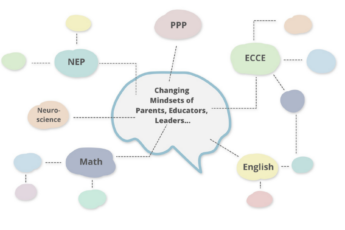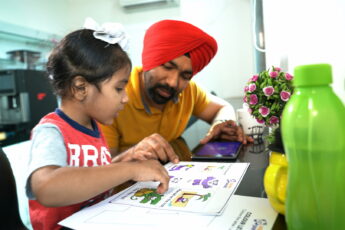3 Reasons School Should Not Start Early

Any parent of young children or teacher of grade school students can tell you how challenging it is to get kids out of bed in the morning. In most countries, school starts as early as 7:00 a.m. This means that kids are expected to get up between 5:00 a.m. and 6:00 a.m. before their day begins. The alarm goes off, and it’s all they can do to force themselves out of the comfort of their bed. Children often react with anger and annoyance when pitted against an early start to the day.
Additionally, students in India typically attend private tuition after school to prepare for exams, as good grades are perceived as a crucial factor for gaining entry into good universities and obtaining employment in the future. This leaves less time for children to have a social life. The problem with this schedule is that it sets up a vicious cycle for children. They stay up late to complete homework and don’t get enough sleep, making them stressed and irritable, which hinders their ability to perform well at school. Once entrenched in that cycle, it’s hard to break free. One parent complained that her son’s sleep cycle has been disrupted due to the fact that he stays up late watching IPL.
🛌 Sleep Crisis
The National Sleep Foundation recommends that children under 13 get 9-11 hours of sleep each night, and teens should get 8-10 hours each night. However, because of the changes in their circadian rhythms during puberty, it can be difficult for teens and tweens to fall asleep before 11:00 p.m. The problem with early school hours is that children are still developing their circadian rhythms — the internal clock that tells us when we should sleep and when we should be awake. It takes time for these rhythms to stabilize, so it stands to reason that school should wait until later in the morning, when children are most receptive to learning inputs.
Children’s sleep schedules are still developing during middle and high school, making it difficult to wake up early enough to get ready for school and stay alert throughout the day. Furthermore, it’s not just adolescents who are affected by early school start times — parents have their fair share of challenges too. When kids have to wake up before 6:00 a.m., parents are up with them — which can lead to family stress if parents aren’t willing or able to adapt their schedules accordingly.
Research has shown that delaying the start of school by an hour or two improves a student’s sleep duration and daytime fatigue. However, changing school start times isn’t easy. It requires teachers and administrators to rethink schedules, bus routes, and after-school sports programs, as well as having parents adjust their expectations about when their kids will be home from school each day. Across the world, some governments, such as the state of California, have realized that children learn better when they are well rested, and therefore mandated school start later.
Here are three reasons why school shouldn’t start early:
✍️ Students Aren’t Ready To Learn When They’re Tired
When you think about it, it’s no surprise that early starts make students less productive. After all, if you had to wake up at 5:00 a.m. every morning for school, your brain would be exhausted by 10:00 a.m.! The body naturally cycles between periods of activity and rest throughout the day. And when we disrupt this natural rhythm by waking up early and staying up late — which happens when kids have early starts — our mind doesn’t work as effectively as it should, especially at times when you’re supposed to be sleeping. This can have serious consequences on learning ability.
✍️ Students Fail to Participate in Extracurriculars
An early start to school makes it harder for students who participate in extracurricular activities, such as sports teams or other after-school activities such as music or cricket practice, where they don’t get home until 5:00 p.m. or later. If schools started later, these students could participate in these activities without worrying about missing their homework assignments due to getting home late from practice or games.
✍️ Sleep Deprivation
Being chronically sleep-deprived can negatively impact a child’s daily functioning, especially in a classroom. Sleep-deprived students have more trouble paying attention, completing tasks, following directions, and remembering what they learned. Sleep deprivation can also cause moodiness, irritability, tantrums, and behavioural problems in children. Being tired can make it harder for kids to control their emotions and behaviour when upset or frustrated. Moreover, post-Covid, the transition back to school is already a challenge for children, and with school starting earlier, it makes things even more difficult for students to adjust to.
Decision-makers must consider better scheduling options for their students, especially in higher grades. There are many issues with the status quo, and while implementing a better schedule won’t fix all of them, it is a dream worth dreaming.
Square Panda India’s comprehensive programs take care of a child’s learning needs throughout their educational journey, and uses scientific research and rigour to deliver optimal learning experiences for multiple education stakeholders, in myriad scenarios.
To know more, visit: https://ecce.squarepanda.in/




Leave a Comment